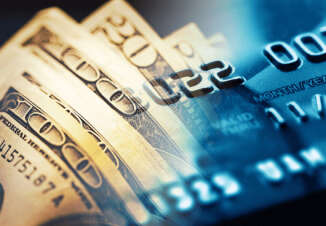The content on this page is accurate as of the posting date; however, some of the offers mentioned may have expired.

If you carefully read the fine print of your credit card agreement, you must have seen such a point on it as the grace period. Lack of proper credit education drives some people to misinterpret the grace period, leading them to some of the most disappointing mistakes of credit card use.
This article will be of great informative value to both, experienced credit consumers and starters, as grace periods are some of the vaguest terms on your credit card contract. There are three most important things about a grace period that every cardholder should be aware of in order to take advantage of it rather than lose.
Fist, let's give the proper definition to the grace period. In general terms, it is a period of time - usually 20-25 days - before the credit card issuer starts charging interest rate on each of your new purchases. There is nothing simpler at first sight and it is no wonder that lots of cardholders are sure that all purchases are exempt from interest charges for at least 20 days, no matter what your credit report and the state of the balance are.
The reality is different, however, and you are not just always entitled to the privilege of the grace period. In fact it depends on your credit card agreement's provision which may come in three forms:
Your credit card has a typical grace period. Such credit card calculates your average daily balance including new purchases. It means you will be charged credit card interest rates on the new purchases, unless, however, you have paid the previous month's balance in full. A credit card with a typical grace period is a perfect variant for disciplined customers who always pay their bills in full.
However, since quite recently, such cardholders have been experiencing sort of disfavor from their creditors as they tend to never pay interest charges to the company, and so - bring much less revenues than expected.
Your credit card has a full grace period. This card's balance calculation method is an average daily balance that excludes new purchases, and it means full freedom from interest charges on new purchases regardless of whether you paid you previous month's bill in full or not. You still have 20-25 days to pay off the bill without incurring interest.
Such type plastic would be the greatest desire for subprime credit cardholders or just those who tend to be late on credit card bills and drag the balance. But unfortunately, there are not many of such products available on the market today.
Your credit card has no grace period. It makes no difference whether you paid you bill in full or not the previous month. You will still be charged interest starting right from the first purchase you make in the new billing cycle. It will not benefit either to good or bad credit customers, so regardless of your credit rating, try to avoid making such a deal with a credit company.
The types of grace period featured above are the three most important things every cardholder should know about if he/she plans to benefit from their credit card usage.
So, your main goal when making a deal with a company and signing up the contract is to find whether the average daily balance excludes new purchases (which means full grace period) or includes new purchases (which means typical or no grace period). Try to also distinguish typical grace period from no grace period, the latter stating that you will be charged right from the date of your first purchase.





